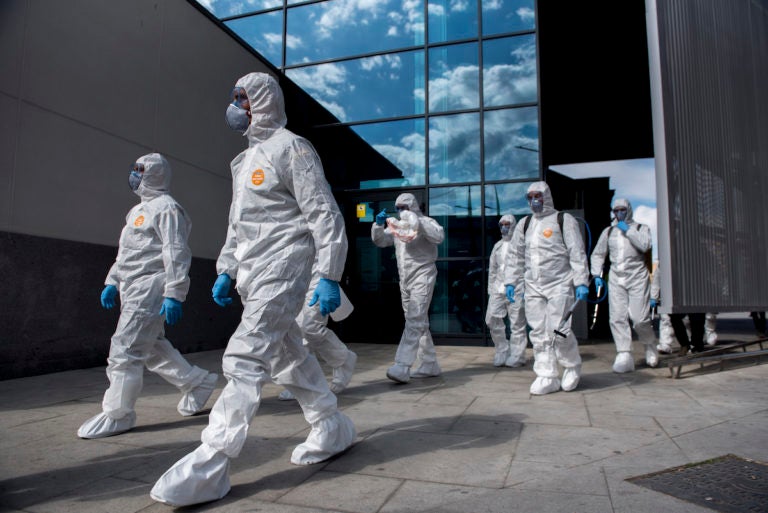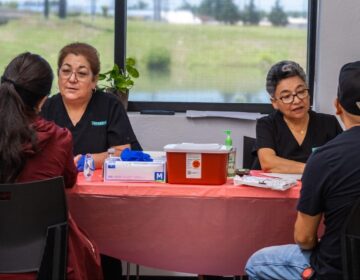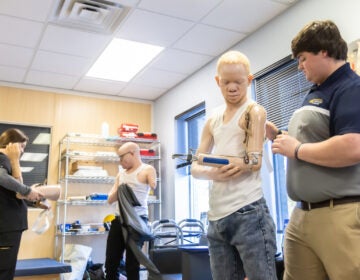Slowing the Spread of COVID-19
Listen 48:44
The UME (Emergency Army Unit) attend the train station in Granada, Spain Tuesday March 17, 2020. Police checked passports and IDs at the Pyrenees' border with France and along the 1,200 kilometer shared border with Portugal, as Spain re-established controls for incoming and outgoing travellers to stem the new COVID-19 coronavirus outbreak. For most people, the new coronavirus causes only mild or moderate symptoms. For some, it can cause more severe illness, especially in older adults and people with existing health problems. (AP Photo/Carlos Gil)
Communities around the world are scrambling to slow the spread of COVID-19: closing businesses and schools, canceling gatherings, and limiting social interactions. Some countries and cities have even gone on almost total lockdown. On this episode, we hear about different measures to stop the virus, and how they’re affecting people. We hear about the impact of medical quarantine, how more aggressive testing could slow the spread, and why some ER doctors think they’re not doing enough to keep the virus in check. We also get an update on COVID-19 vaccine research.
Also heard on this week’s episode:
- We are asking people all around the country to start sending us little time capsules of their lives as the coronavirus spreads. If you can record yourself on your smartphone and tell us how your life is changing, please be in touch with host Maiken Scott, mscott@whyy.org
- Regular Pulse contributor and ER doctor Avir Vitra tells us about how medical professionals are dealing with the COVID-19 spread, and whether the medical system is prepared for this kind of pandemic.
- Sheri Fink, a New York Times correspondent and executive producer of the Netflix series, “Pandemic: How to Prevent an Outbreak,” explains why testing is so crucial for both public health officials and anyone who thinks they may have been exposed to the virus. Fink, who won Pulitzer Prizes for her investigation into a New Orleans hospital in the days after Hurricane Katrina and for her reporting during the 2014 Ebola outbreak in West Africa, also offers advice on how to stay safe and sane during the pandemic.
- Reporter Cris Barrish takes us to one of the country’s first drive-through testing sites, and talks to patients who suspect they may have been infected.
Segments from this episode
WHYY is your source for fact-based, in-depth journalism and information. As a nonprofit organization, we rely on financial support from readers like you. Please give today.






